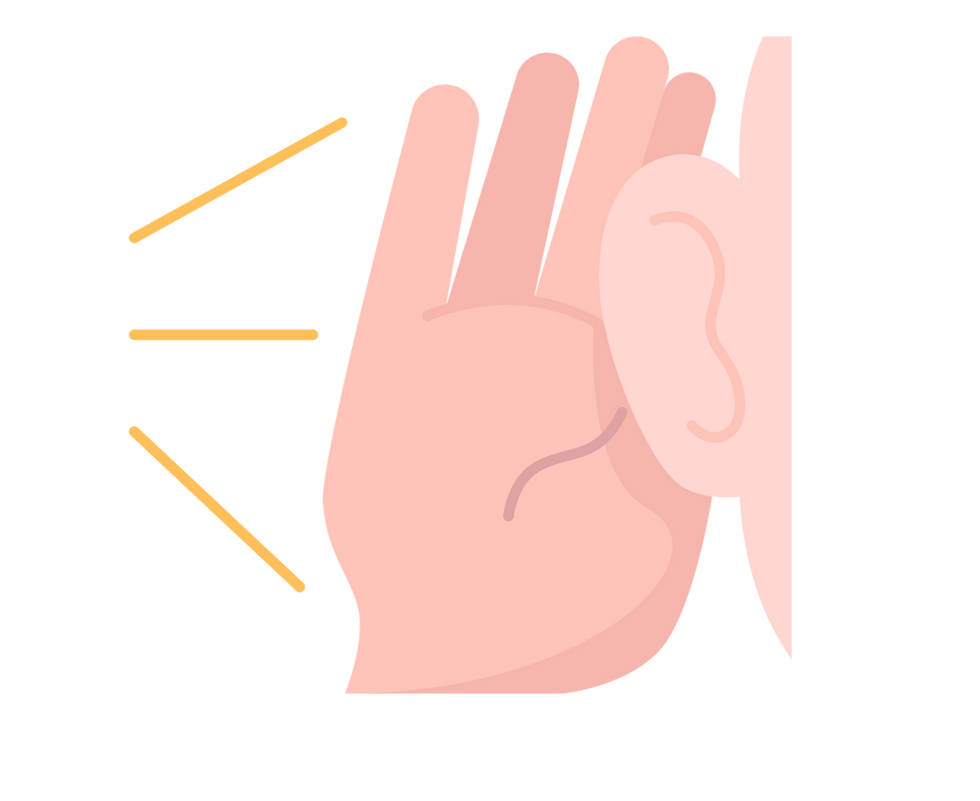

Supporting a friend
If you notice a friend is having a hard time or if they tell you about violence at home, it can be hard to know how to respond. It is important to balance between helping your friend and making sure you are protecting your own wellbeing.

To support you in understanding how to best help a friend, Kids of Purple has collaborated with RightByYou 💜
What can you do to help a friend who is struggling at home?
![Image_47[1].png](https://static.wixstatic.com/media/fc34c4_caace5fa883645d4bd71992eb55f1948~mv2.png/v1/crop/x_1,y_117,w_687,h_528/fill/w_687,h_528,al_c,q_90,enc_avif,quality_auto/Image_47%5B1%5D.png)
Ask if they are okay
![Ellipse_5[1].png](https://static.wixstatic.com/media/fc34c4_cc541b06ef1d46fdb398bfe95eb6135b~mv2.png/v1/fill/w_18,h_20,al_c,q_85,enc_avif,quality_auto/Ellipse_5%5B1%5D.png)
If a friend is showing out-of-character behaviour or engaging in risks, it may be a sign something is going on at home
Sometimes, people experience difficulties won't share those experiences unless they feel safe to do so. Checking in and asking if everything is okay will let them know you are there to support them if they feel like sharing.
![Ellipse_5[1].png](https://static.wixstatic.com/media/fc34c4_cc541b06ef1d46fdb398bfe95eb6135b~mv2.png/v1/fill/w_18,h_20,al_c,q_85,enc_avif,quality_auto/Ellipse_5%5B1%5D.png)
Listen without judgement
![Ellipse_5[1].png](https://static.wixstatic.com/media/fc34c4_cc541b06ef1d46fdb398bfe95eb6135b~mv2.png/v1/fill/w_18,h_20,al_c,q_85,enc_avif,quality_auto/Ellipse_5%5B1%5D.png)
It may be hard to understand what a friend is experiencing or it may even be hard to believe (especially if you know their family) but listening to what they share and trusting what they say can make your friend's experiences feel validated.
If your friend feels they are listened to, they may be more likely to seek help if they need it.
You may also be the first person your friend has told and telling someone about troubles at home can be a really hard thing to do. It is important to make sure you show respect and listen carefully to what they say so they know that you care.
![Ellipse_5[1].png](https://static.wixstatic.com/media/fc34c4_cc541b06ef1d46fdb398bfe95eb6135b~mv2.png/v1/fill/w_18,h_20,al_c,q_85,enc_avif,quality_auto/Ellipse_5%5B1%5D.png)
![Ellipse_5[1].png](https://static.wixstatic.com/media/fc34c4_cc541b06ef1d46fdb398bfe95eb6135b~mv2.png/v1/fill/w_18,h_20,al_c,q_85,enc_avif,quality_auto/Ellipse_5%5B1%5D.png)

![Image_48[1].png](https://static.wixstatic.com/media/fc34c4_446e37a723f046d89f449be710dc0dce~mv2.png/v1/crop/x_0,y_0,w_592,h_439/fill/w_592,h_439,al_c,q_85,enc_avif,quality_auto/Image_48%5B1%5D.png)
Encourage them to speak to a trusted adult
![Ellipse_5[1].png](https://static.wixstatic.com/media/fc34c4_cc541b06ef1d46fdb398bfe95eb6135b~mv2.png/v1/fill/w_18,h_20,al_c,q_85,enc_avif,quality_auto/Ellipse_5%5B1%5D.png)
Experiencing abuse at home can feel overwhelming so talking to a professional or trusted adult may help.
Trusted adults could be a teacher, a police officer, a neighbour, a family friend, a sports coach etc.
If your friend is nervous about speaking to someone, you could offer to go with them or encourage them to call an anonymous helpline.
![Ellipse_5[1].png](https://static.wixstatic.com/media/fc34c4_cc541b06ef1d46fdb398bfe95eb6135b~mv2.png/v1/fill/w_18,h_20,al_c,q_85,enc_avif,quality_auto/Ellipse_5%5B1%5D.png)
![Ellipse_5[1].png](https://static.wixstatic.com/media/fc34c4_cc541b06ef1d46fdb398bfe95eb6135b~mv2.png/v1/fill/w_18,h_20,al_c,q_85,enc_avif,quality_auto/Ellipse_5%5B1%5D.png)
Respect their privacy or decisions
![Ellipse_5[1].png](https://static.wixstatic.com/media/fc34c4_cc541b06ef1d46fdb398bfe95eb6135b~mv2.png/v1/fill/w_18,h_20,al_c,q_85,enc_avif,quality_auto/Ellipse_5%5B1%5D.png)
Sometimes people don’t want to, or aren’t able to, reach out for help for fear that it will make a situation more unsafe. Even though, it may seem 'wrong' if your friend doesn't want to seek help, it may be the best decision for their safety at the time.
Respecting their decisions will make them trust you more and help them feel safe sharing with you.
If your friend's safety is in danger and they do not want to speak help, you could speak to a trusted adult without disclosing their name (eg. "I have a friend who...") or call the Kids Helpline for advice.
![Ellipse_5[1].png](https://static.wixstatic.com/media/fc34c4_cc541b06ef1d46fdb398bfe95eb6135b~mv2.png/v1/fill/w_18,h_20,al_c,q_85,enc_avif,quality_auto/Ellipse_5%5B1%5D.png)
![Ellipse_5[1].png](https://static.wixstatic.com/media/fc34c4_cc541b06ef1d46fdb398bfe95eb6135b~mv2.png/v1/fill/w_18,h_20,al_c,q_85,enc_avif,quality_auto/Ellipse_5%5B1%5D.png)
![Image_49[1].png](https://static.wixstatic.com/media/fc34c4_c4c12a1e01a749d69e40ddf6c92ab5de~mv2.png/v1/crop/x_1,y_210,w_692,h_565/fill/w_692,h_565,al_c,q_90,enc_avif,quality_auto/Image_49%5B1%5D.png)
![Image_50[1].png](https://static.wixstatic.com/media/fc34c4_2445f4d9c9b844c8a21efb6a09a51b0d~mv2.png/v1/crop/x_20,y_238,w_719,h_512/fill/w_719,h_512,al_c,q_90,enc_avif,quality_auto/Image_50%5B1%5D.png)
Spend time together and offer help if possible
![Ellipse_5[1].png](https://static.wixstatic.com/media/fc34c4_cc541b06ef1d46fdb398bfe95eb6135b~mv2.png/v1/fill/w_18,h_20,al_c,q_85,enc_avif,quality_auto/Ellipse_5%5B1%5D.png)
Domestic and family violence can be an emotionally and physically isolating experience. Making efforts to spend time with a friend will make them feel valued.
If you are able to, offering transport assistance or asking if they want to stay the night may help relieve stress.
Just remember that everyone is different and some people may prefer to spend time alone or. at home.
![Ellipse_5[1].png](https://static.wixstatic.com/media/fc34c4_cc541b06ef1d46fdb398bfe95eb6135b~mv2.png/v1/fill/w_18,h_20,al_c,q_85,enc_avif,quality_auto/Ellipse_5%5B1%5D.png)
![Ellipse_5[1].png](https://static.wixstatic.com/media/fc34c4_cc541b06ef1d46fdb398bfe95eb6135b~mv2.png/v1/fill/w_18,h_20,al_c,q_85,enc_avif,quality_auto/Ellipse_5%5B1%5D.png)
Help them stay away from risky behaviours
![Ellipse_5[1].png](https://static.wixstatic.com/media/fc34c4_cc541b06ef1d46fdb398bfe95eb6135b~mv2.png/v1/fill/w_18,h_20,al_c,q_85,enc_avif,quality_auto/Ellipse_5%5B1%5D.png)
If your friend is struggling at home and then starts engaging in risky behaviours (such as drinking alcohol, stealing, not doing schoolwork), they could be at risk of becoming addicted to those behaviours.
You could also encourage your friend to continue doing things they love by spending time doing those activities with them.
![Ellipse_5[1].png](https://static.wixstatic.com/media/fc34c4_cc541b06ef1d46fdb398bfe95eb6135b~mv2.png/v1/fill/w_18,h_20,al_c,q_85,enc_avif,quality_auto/Ellipse_5%5B1%5D.png)

For more help in supporting a friend, visit www.RightByYou.org.au
RightByYou is designed for young people by young people. It aims to provide youth with the confidence to help friends in need across a range of problems including bullying, mental health struggles and domestic and family violence.

